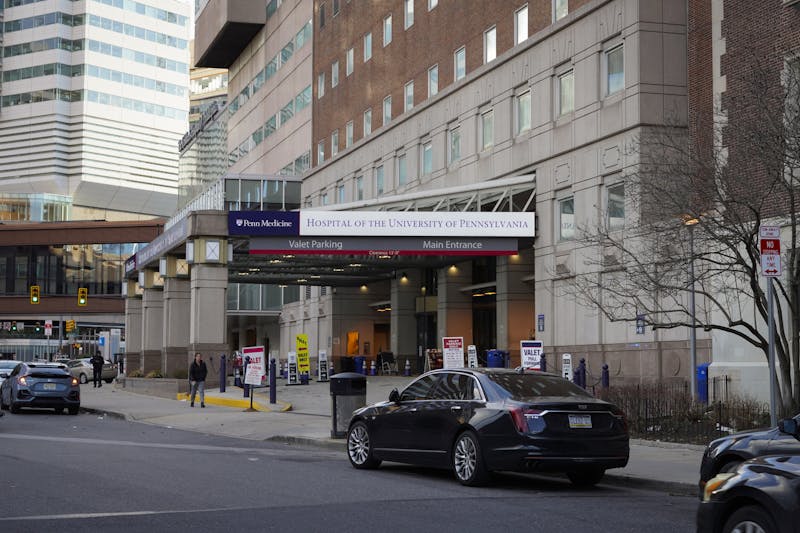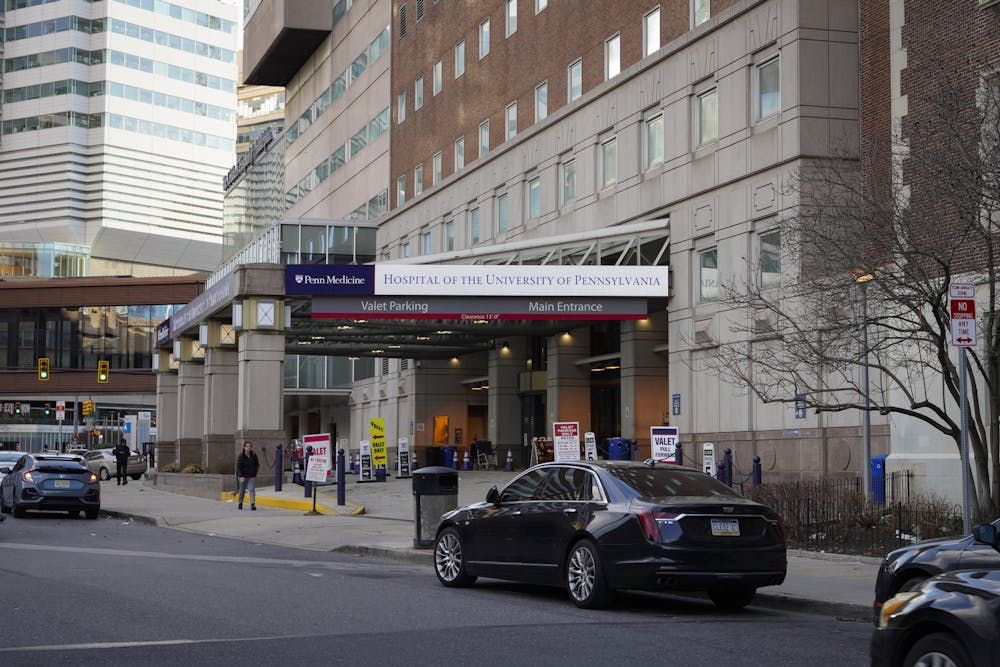A recent Penn Medicine study analyzed how incarceration affects cardiovascular health.
Credit: Siri Challa
A recent study by Penn researchers found that one-third of deaths among incarcerated individuals in the United States were caused by cardiovascular disease.
The study, which was published in The Journal of the American Heart Association, examined how incarceration affects cardiovascular outcomes using health records from state prison systems over a 19-year period. Looking at more than 18,000 cardiac deaths, the researchers found that cardiovascular mortality rates, when age-adjusted, have increased since 2012 for those incarcerated in U.S. state prison systems.
In a written statement to The Daily Pennsylvanian, lead author Lauren Eberly, assistant professor of medicine at the Perelman School of Medicine, noted the increase was “particularly striking” given that mortality rates of cardiovascular disease — the leading cause of death for Americans — among the overall population have decreased from 1999 to 2023.
“Given the large proportion of the population that is incarcerated at any given time in the United States, the health care provided in prison can have significant public health implications,” Eberly wrote.
The United States leads the world in incarceration rates, and more than half of these individuals serve in state prisons.
Eberly stated that this study was inspired by her experience treating “justice-involved” individuals in her Philadelphia-based cardiology clinic. She noticed a number of her patients developed cardiovascular disease while incarcerated but weren’t receiving the proper treatment or medications for their conditions.
She decided to study this further in hopes of highlighting the health inequities caused by incarceration and advocating for better implementation of cardiovascular care for this population.
Eberly highlighted several key findings from the study: Among incarcerated individuals who died from cardiovascular disease, 19% had not received a medical evaluation, 31% had not undergone diagnostic testing, and 27% had never received medical treatment for the condition during their incarceration.
Additionally, nearly a quarter of these deaths resulted from a condition that developed after admission to prison — most of them occurred after 10 years served.
“While prisons are legally obligated to provide adequate medical care to those incarcerated, this study and my experience treating my patients have demonstrated that the system is falling short,” Eberly wrote.
Eberly and her colleagues also found that Black incarcerated individuals were more likely than white individuals to die from cardiovascular causes and were statistically less likely to receive medical care for the conditions that led to their deaths.
“Mass incarceration is a sociopolitical driver of health inequities. Given the racialization of mass incarceration, dismantling carceral structures that perpetuate health inequities is necessary,” Eberly wrote.
Eberly highlighted the current gap in federal regulations governing health care standards in prison systems, emphasizing that “comprehensive” standardized guidelines for cardiovascular screening, evaluation, and management were needed.
Sign up for our newsletter
Get our newsletter, DP Daybreak, delivered to your inbox every weekday morning.
She pointed out that current Medicaid and Medicare coverage policies do not include health care services for incarcerated individuals, and that enacting policies to expand coverage could improve the quality of care.
In the future, Eberly hopes to conduct a qualitative study collecting patient feedback on their experiences receiving care while being incarcerated. She aims for this to lead to “improved transparency and public reporting of quality care metrics across all prison systems.”
Other authors contributing to the study included assistant professors of cardiovascular medicine Ashwin Nathan and Sameed Khatana. Along with Eberly, both Nathan and Khatana are senior fellows at the Penn Leonard Davis Institute of Health Economics.
The Daily Pennsylvanian is an independent, student-run newspaper. Please consider making a donation to support the coverage that shapes the University. Your generosity ensures a future of strong journalism at Penn.

